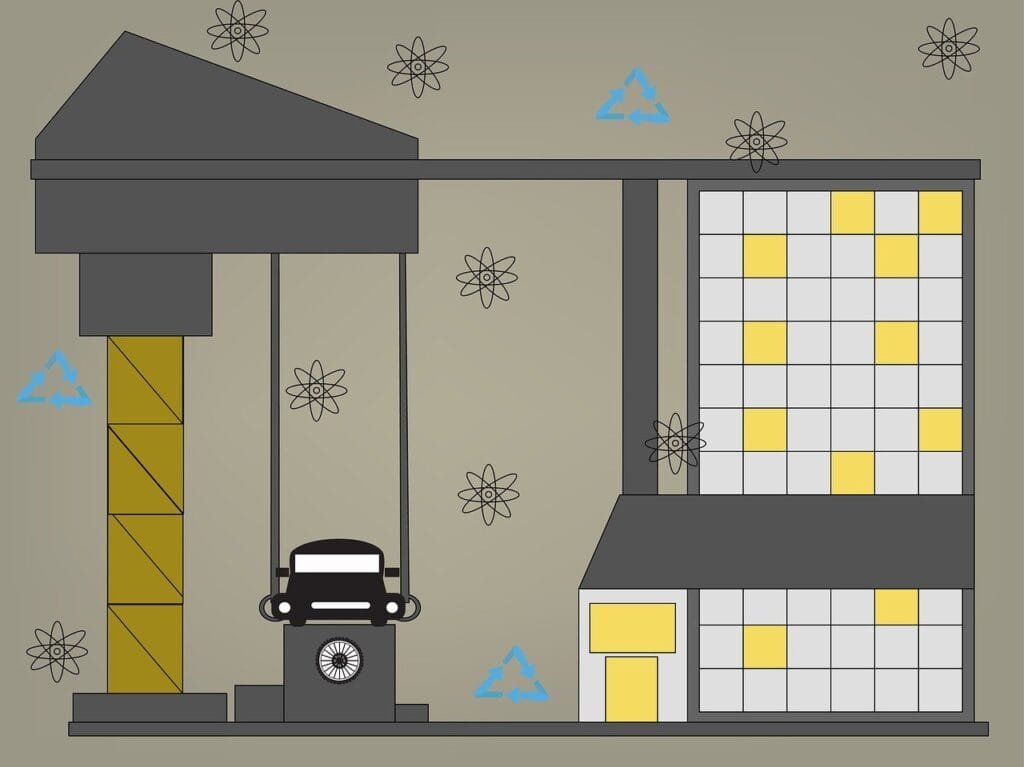What do you think the connection is between climate change and a company’s liability risk assessments? It’s a significant question that many businesses are beginning to ask as they navigate the increasingly complicated landscape of environmental responsibility and legal obligations. Understanding how climate change impacts liability risk assessments is essential to ensure your business remains compliant, competitive, and responsible.
The Evolving Landscape of Liability Risk Assessments
The way businesses assess their liability risks has undergone tremendous changes in recent years. Traditionally, companies focused on insurable risks, like accidents in the workplace or errors in services provided. However, the rising awareness of climate change has shifted this perspective, adding environmental considerations into the mix. Companies now need to evaluate how their operations impact the environment and, conversely, how climate change can potentially create liabilities for them.
Understanding Liability Risks in the Context of Climate Change
Liability risk assessments traditionally considered direct actions and negligence. In today’s world, it’s essential to broaden this horizon. Climate-related risks can manifest in various ways, such as regulatory compliance, litigation costs, and reputational damage. Notably, organizations must recognize how climate change issues like severe weather events, rising sea levels, and regulatory changes can pose significant risks.
The Impact of Climate Policies on Business Practices
Governments worldwide are increasingly implementing regulations aimed at reducing greenhouse gas emissions and promoting sustainability. Companies not in compliance with these regulations may face severe fines, which becomes an integral aspect of liability risk assessments. Businesses need to stay informed about evolving legislation to navigate liability effectively.
The Evolution of Professional Liability Insurance
Professional liability insurance has evolved to incorporate various emerging risks, including those stemming from climate change. Understanding this evolution can help you make informed decisions regarding your coverage options.
How Professional Liability Insurance Differs from General Liability
While both types of insurance provide essential coverage, they differ significantly. General liability protects against claims related to bodily injury and property damage, while professional liability focuses on claims of negligence or failure in providing services. In light of climate change, the differences between these policies become increasingly relevant.

Evaluating Your Need for Professional Liability Coverage
Determining whether you need professional liability insurance requires a careful evaluation of your business operations, especially in relation to climate risks. Here are some key factors to consider:
Assessing Business Operations and Exposures
Evaluate the nature of your services and how they relate to environmental impact. Are you involved in industries that are heavily scrutinized for their environmental effects, such as construction or manufacturing? Such businesses may face higher exposures and therefore require more comprehensive professional liability coverage.
Understanding Emerging Risks
As climate change becomes increasingly relevant, there are emerging risks that businesses must consider. Natural disasters or climate-related incidents can result in operational disruptions, which impact your liability risk. Recognizing these risks early on may help mitigate them effectively.
Tailoring Liability Insurance for Specific Industries
Liability insurance needs differ from one industry to another, especially in the context of climate change. Let’s break down how specific sectors can adapt their insurance coverage to these emerging risks.
Professional Liability Needs for Healthcare Providers
Healthcare providers must consider how climate change impacts patient care and facility operations. Natural disasters can affect service delivery continuity, leading to liability claims. Tailoring coverage to address these distinct challenges is crucial.
Insurance Challenges in the Construction Sector
In the construction industry, climate change risks can manifest in various ways, including regulation changes and damage from weather-related incidents. This sector has to remain extra vigilant, as exposure to claims can be significantly influenced by how well contractors are prepared to handle these evolving risks.
| Industry | Insurance Challenges |
|---|---|
| Healthcare Providers | Service delivery interruptions due to extreme weather |
| Construction Sector | Compliance with evolving regulations and safety standards |
| Tech Industry | Cybersecurity as a growing liability risk |

The Role of Professional Liability in Business Continuity
In the world of business, continuity is critical. Professional liability insurance plays a crucial role in ensuring that your company can navigate the complexities of operational risks.
Importance of Comprehensive Risk Management
Incorporating a comprehensive risk management strategy is vital. By understanding the multifaceted risks posed by climate change and implementing the right insurance, your business will be better positioned to thrive.
The Impact of AI on Professional Liability Policies
Artificial intelligence has started to play a pivotal role in various industries, even influencing professional liability policies. Here’s how AI intersects with liability risk assessments in the context of climate change.
Addressing Risks with Predictive Analytics
Businesses can leverage AI to predict potential liabilities associated with climate change. Predictive analytics can help you assess how different factors may influence your risk exposure, enabling well-informed decision-making about your insurance needs.
The Challenge of New Technologies
While AI offers advanced solutions for predicting risks, it also introduces new vulnerabilities. With cybersecurity being a crucial concern in today’s climate, ensuring that your policies address these evolving threats is essential.

Cybersecurity Threats and Their Influence on Insurance Needs
Climate change isn’t solely about environmental impacts; it also intersects with cybersecurity. As businesses increasingly move online, the importance of cybersecurity insurance has grown.
Understanding the Cyber Liability Landscape
Businesses must be aware of how climate change can drive more cyberattacks. For example, during natural disasters, fraudulent schemes or social engineering attacks can arise. Understanding how these threats interact with your professional liability coverage can help mitigate risks.
Adapting Insurance Coverage to Evolving Threats
Your insurance coverage must adapt as cyber threats evolve. Cybersecurity insurance should now be part of your broader professional liability strategy, addressing both direct impacts from climate effects and cybersecurity challenges.
Navigating the Hard Market in Professional Liability
As liability risks evolve, so do market conditions. A hard market often means higher premiums or limited coverage options, especially in industries susceptible to climate-related liabilities.
Strategies for Securing Coverage
- Stay Informed: Keep abreast of industry trends and climate change developments that can impact liability.
- Engage with Brokers: Work closely with insurance brokers to tailor coverage to your specific needs.
- Document Your Efforts: Demonstrating proactive risk management can help negotiate better coverage terms.

Lessons from High-Profile Professional Liability Lawsuits
Analyzing high-profile lawsuits can provide invaluable insights into emerging risks. Companies that have faced the consequences of their environmental impact serve as cautionary tales.
Key Takeaways from Case Studies
- Regulation Compliance: A failure to comply with environmental regulations can result in significant liability.
- Reputation Matters: Litigation tied to environmental negligence can severely damage a company’s reputation.
How Large Corporations Manage Their Liability Risks
Larger corporations present unique challenges and approaches when it comes to liability risk management.
Comprehensive Risk Management Strategies
Large companies often have the resources to develop comprehensive risk management strategies that integrate environmental risks into their overall liability assessments.
Leveraging Data for Better Decision-Making
Data-driven decision-making plays a significant role in how these corporations assess and manage risks related to climate change.

Case Study: Successful Claims Mitigation Strategies
Understanding successful claims mitigation strategies can provide great insights for your business. Let’s look at a hypothetical example illustrating the importance of preparedness.
Proactive Measures Taken
A construction company faced increased risks due to changing weather patterns. By investing in sustainability training for employees and adjusting operations according to climate forecasts, the company significantly reduced its risks. As a result, during a lawsuit stemming from a delayed project due to an extreme weather event, the company’s comprehensive strategy resulted in a more favorable outcome.
The Financial Impact of Negligence Claims on Small Businesses
Small businesses face unique challenges when dealing with negligence claims, especially with the added pressure of climate change.
Quantifying the Risks
Negligence claims can lead to costly consequences. It’s crucial to develop a financial model that helps assess potential liabilities against business assets.
Staying Ahead of Potential Threats
By evaluating risks and implementing proper insurance coverage, small businesses can shield themselves from significant financial losses while navigating the evolving environmental landscape.
Understanding real-world claims in the context of errors and omissions insurance can provide valuable lessons.
Different Scenarios and Outcomes
-
Consulting Firm: A consulting firm received a claim for environmental harm due to outdated advice. They settled with the client by demonstrating improved risk management practices.
-
Healthcare Provider: A healthcare provider faced litigation due to service interruptions from a natural disaster. Comprehensive insurance coverage aided in their swift recovery.
A Step-by-Step Guide to Filing a Professional Liability Claim
Knowing how to file a claim is essential for navigating the challenges of professional liability. Here’s a simple guide to help you through the process:
Step 1: Notify Your Insurer
Make sure you inform your insurer as soon as you become aware of a potential claim. They need time to assess and investigate before proceeding.
Step 2: Gather Documentation
Collect all relevant documentation, which may include contracts, correspondence, and notes related to the claim, to support your case.
Step 3: Work with Claims Adjusters
Be prepared to engage with claims adjusters, providing them with requested information promptly to ensure a smooth process.
Selecting the right errors and omissions insurance requires thoughtful consideration. Here are some key points to remember:
Assess Your Specific Needs
Evaluate your business operations and potential risks. This assessment will help you determine what coverage you need.
Understand Policy Limits
Learning about policy limits is crucial. Understand how much coverage is necessary to protect your business adequately.
It’s vital to grasp what the policy limits and deductibles mean for your coverage.
The Importance of Adequate Limits
Insufficient coverage can lead to significant financial hardship in the event of a claim. Make sure your policy limits align with the potential liabilities your business may face.
Choosing the Right Deductible
Selecting an appropriate deductible helps balance premium costs with risk exposure. You want to ensure your deductible is manageable if a claim arises.
The Impact of Prior Claims on Future Insurability
You may wonder how prior claims affect your ability to obtain future insurance.
Claims History Considerations
Insurers often evaluate your claims history when determining policy terms. A history of frequent claims can result in higher premiums or difficulty acquiring coverage.
Strategies for Improving Insurability
By demonstrating improved risk management practices, you can bolster your future insurability and potentially lower premiums.
When to Review and Update Your Liability Coverage
Regular reviews and updates to your liability coverage are essential. Here’s what you should consider:
Changes in Business Operations
If you make significant changes to your business operations, it’s time to review your coverage. This includes expansions, introducing new products, or entering new markets.
Regulatory Shifts and Climate Considerations
Stay informed about changes in regulations that may affect your liability risk landscape. Adjusting your coverage accordingly can enhance your protection.
The Role of Brokers and Agents in the Insurance Process
Working with an insurance broker or agent can streamline the process of obtaining liability coverage. Here’s how they can assist you.
Expert Guidance
Brokers understand the nuances of liability insurance and can guide you toward the best coverage options tailored to your unique needs.
Negotiation Support
Brokers are skilled negotiators who can help you secure favorable terms and premiums based on your risk profile.
Tips for Communicating with Your Insurer
Effective communication with your insurer is vital for successful coverage management.
Be Transparent
Provide all relevant information when discussing your business operations. Transparency helps the insurer understand your risk profile.
Keep Lines Open
Maintaining open lines of communication allows for prompt resolution of any issues or questions that may arise.
Understanding the Claims Process: What to Expect
Filing a claim can be daunting but knowing the process can alleviate concerns.
Key Steps in the Claims Process
- Notify your insurer of the claim.
- Provide necessary documentation.
- Work alongside the insurer for resolution.
Potential Outcomes
Be prepared for various potential outcomes, including settlements, denials, or increased premiums based on claims history.
The Intersection of Technology and Liability Insurance
Technology impacts the way liability insurance is structured and purchased.
Adapting to Digital Transformation
With businesses increasingly moving online, it’s crucial to ensure that your liability coverage encompasses digital risks.
Future Trends in InsurTech
The emergence of InsurTech platforms is simplifying the process of obtaining and managing liability insurance, offering enhanced flexibility and convenience.
Conclusion
Climate change’s impact on your liability risk assessments is undeniable. By staying proactive and informed, you can navigate these risks effectively, ensuring that your business remains resilient in the face of environmental challenges. Always strive for tailored coverage and a comprehensive approach to risk management, allowing your business to thrive while being a responsible steward of the environment. As you embark on this journey, remember that understanding your unique risks and maintaining open communication with your insurers will be key to successfully managing liability risks in this ever-changing landscape.
